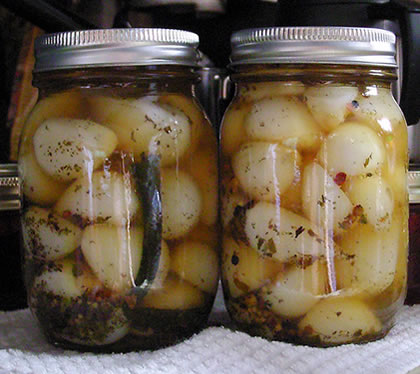The HIV virus attacks the immune system and can effectively destroy its ability to fight diseases. When the virus has destroyed too many of the immune system’s white blood cells, the body succumbs to all kinds of invasive infections and diseases, including pneumonia, Kaposi’s sarcoma, herpes, meningitis, tuberculosis, cancer and others. That is when the HIV infection is reclassified as AIDS. The patient dies from complications from the opportunistic infections of AIDS and not from the HIV itself.
Although antiretroviral drugs are being used on a worldwide scale to fight HIV and AIDS, the drugs’ effectiveness to permanently suppress the virus are still in debate. The HIV virus has shown an ability to replicate and mutate to become drug-resistant.
Diet and Nutrition
As the disease progresses, the weakening immune system may cause malabsorption of nutrients, insufficient fat storage and weight loss or diarrhea. A diet high in protein is recommended with a high calorie intake. Consulting with nutritionists can be helpful, since they can prescribe supplements for any nutritional deficiencies. In one study of HIV-infected men, it was found that those men who took multivitamin supplements saw a slower progression of the disease. Reasonable caution is advised as some vitamins may not be compatible with some AIDS medicines. Homeopathic remedies and herbs such as garlic have shown great promise in curbing the proliferation of the HIV infection and boosting the immune system in fighting AIDS.
Alternative Treatments for AIDS/HIV
In recent years alternative homeopathic medicines are being tested and used to treat HIV and AIDS patients. The U.S.Centers for Disease Control and Prevention indicates a number of herbs including ginseng, licorice, St. John’s wort, aloe vera, and echinacea to be helpful in the treatment of HIV/AIDS.
In some of the lower income regions of the world, homeopathy is the only option available to treat symptoms of HIV and AIDS; this is because pharmaceutical medications are expensive and out of the reach of the poor.
Among other alternative herb remedies being used are spirulina, turmeric, and Chinese bitter melon. These have been found to enhance the function of the immune system. Garlic, in particular, has shown amazing results.
Garlic Successfully Treats HIV/AIDS Patients
A number of studies have found garlic to be effective against the common infections in AIDS, including, herpes and mycobacteria, cryptococcus, as well as cryptosporidia and pneumocystis. Indeed, garlic may actually obstruct the spread of HIV virus in the AIDS patient!
Garlic and the Immune System
Garlic enhances the action of three cell types in the immune system’s arsenal that are important in combating HIV and AIDS-related infections. One of a multitude of garlic’s components, diallyl trisulfide, activates the natural killer cells, the Cytotoxic T-cells, (these attach themselves to microbes and secrete poisons into them), the phagocytes, (which engulf or swallow invader germs), and the lymphocytes, (which produce antibodies that kill specific microbes).
Garlic Effective Against Opportunistic HIV infections
Promising research into garlic’s therapeutic value for fighting HIV was first presented at the 1989 International AIDS Conference and subsequently published in the German Journal of Oncology (Deutsche Zeitschrift Onkologie). Kyolic garlic (aged garlic preparation) was given to ten AIDS patients. All were in advanced stages of AIDS, with various opportunistic infections, including genital herpes and cryptosporidial diarrhea. For the first six weeks the patients received 5 grams, or around 2 cloves of garlic daily and then 10 grams or 6 cloves daily for another six weeks. Three of the patients did not complete the trials because they were at the terminal stages of the disease and died before the trial ended. However, the seven who completed the trials showed NORMAL killer cell activity by the end of the twelve week period (six of them regained normal killer cell activity by the end of the first six weeks!). Also significant was the fact that all the patients’ infections improved: including a candida infection, genital herpes and chronic diarrhea. One patient with chronic sinus infection, who did not get any relief after a year’s worth of taking regular antibiotics, improved after the garlic trial.
Prolonging Life of AIDS Patients
While HIV/ AIDS is incurable, the objective of treatment is to curb opportunistic infections from getting a foothold by boosting the immune system, and thus prolonging life, as well as improving the patient’s quality of life. Garlic revs up the immune system’s disease-fighting ability, killing many bacteria and viruses on contact, preventing their proliferation. Bacteria and viruses, furthermore, do not form resistance to garlic as they can to regular pharmaceutical antibiotics and medications. In addition, garlic, unlike pharmaceutical antibiotics, does not harm the intestinal flora, which is so important to digestion and absorption of nutrients.
Garlic is thus important as an adjunct treatment for HIV/AIDS, significantly helping improve a patient’s life. HIV and AIDS patients are encouraged to eat raw, crushed garlic every day within a healthy regime prescribed by their physician and nutritionist.
